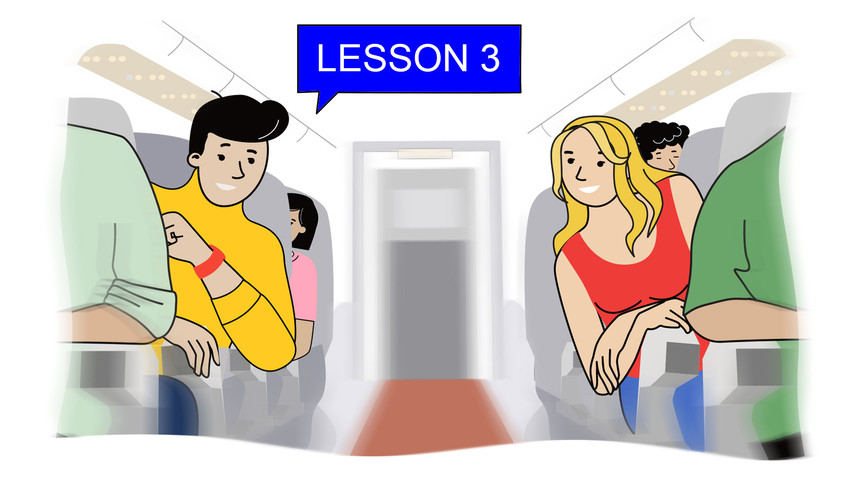
There aren’t too many times in life these days when one is forced to ask a stranger the question: “What time is it?” Say you’re running late for work and you’re in a crowded train, but you forgot your watch. In that case, you’ve always got your phone - but what if you forgot it at home, as well? You can always ask the person next to you, or at least take a sneak peek at their phone. There are also always the trusty display monitors aboard Moscow Metro trains, for instance, but if you can’t get a good angle, then the only way to find out is, indeed, to ask the person next to you!
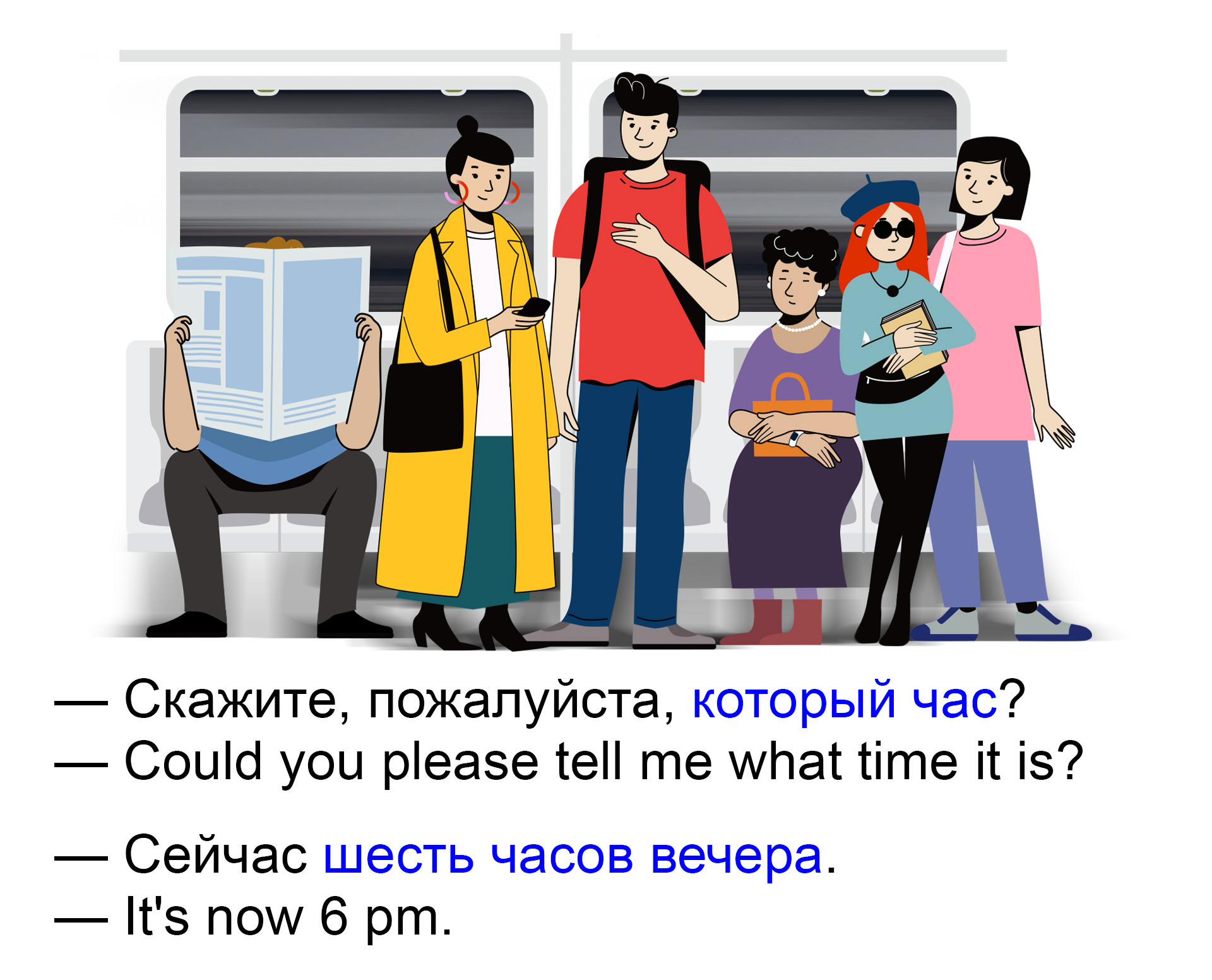
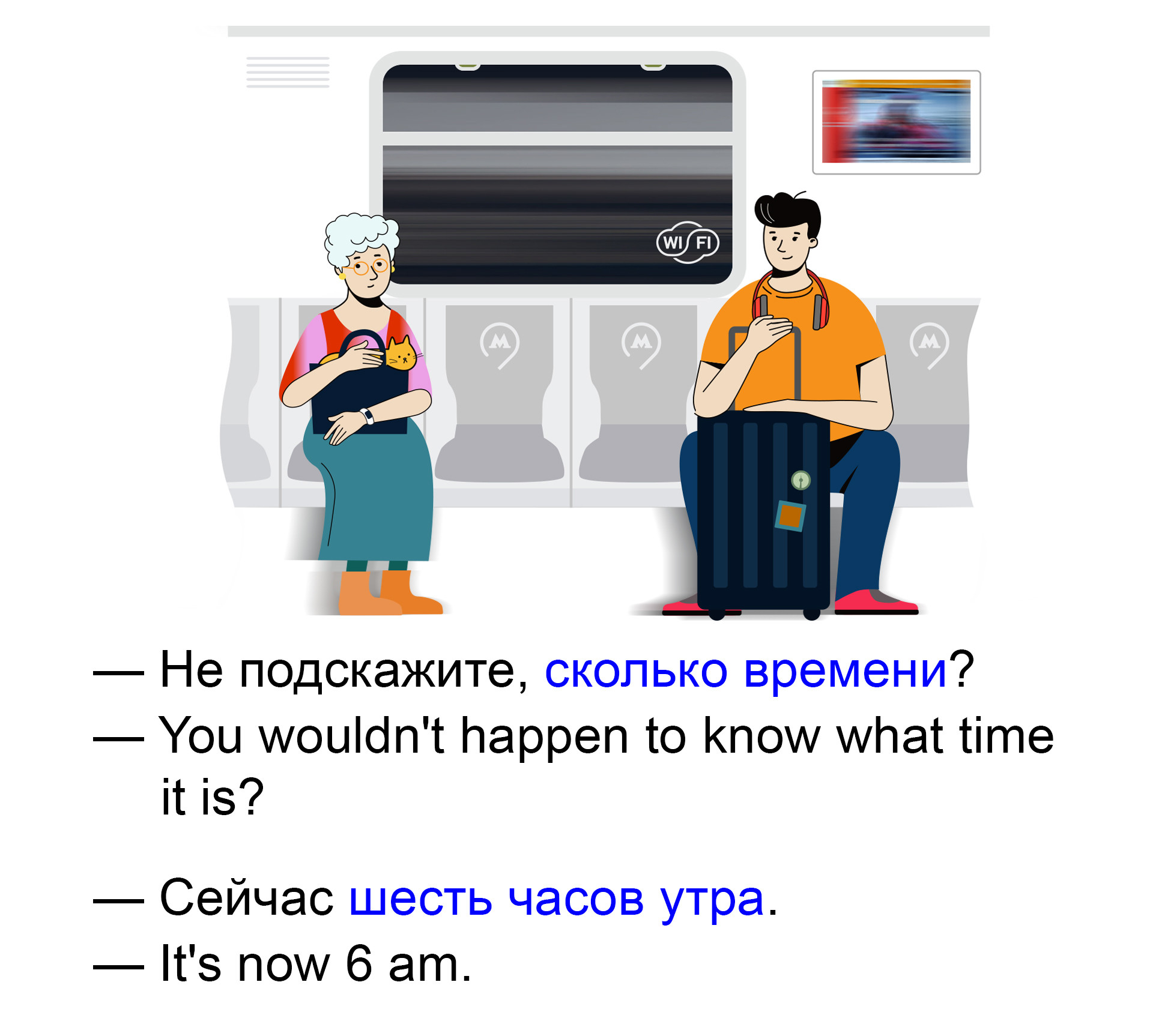
The first question - “Кото́рый ча́с?” - is a more polite form that you’ll find in most textbooks. The second, however - “Ско́лько вре́мени?” - is far more commonly used, so it’s best to remember it instead.
In telling the exact time (let’s leave minutes out for the time being), conversational Russian uses the 12-hour format. The word час is used in the genitive (second) case in singular or plural after numerals.
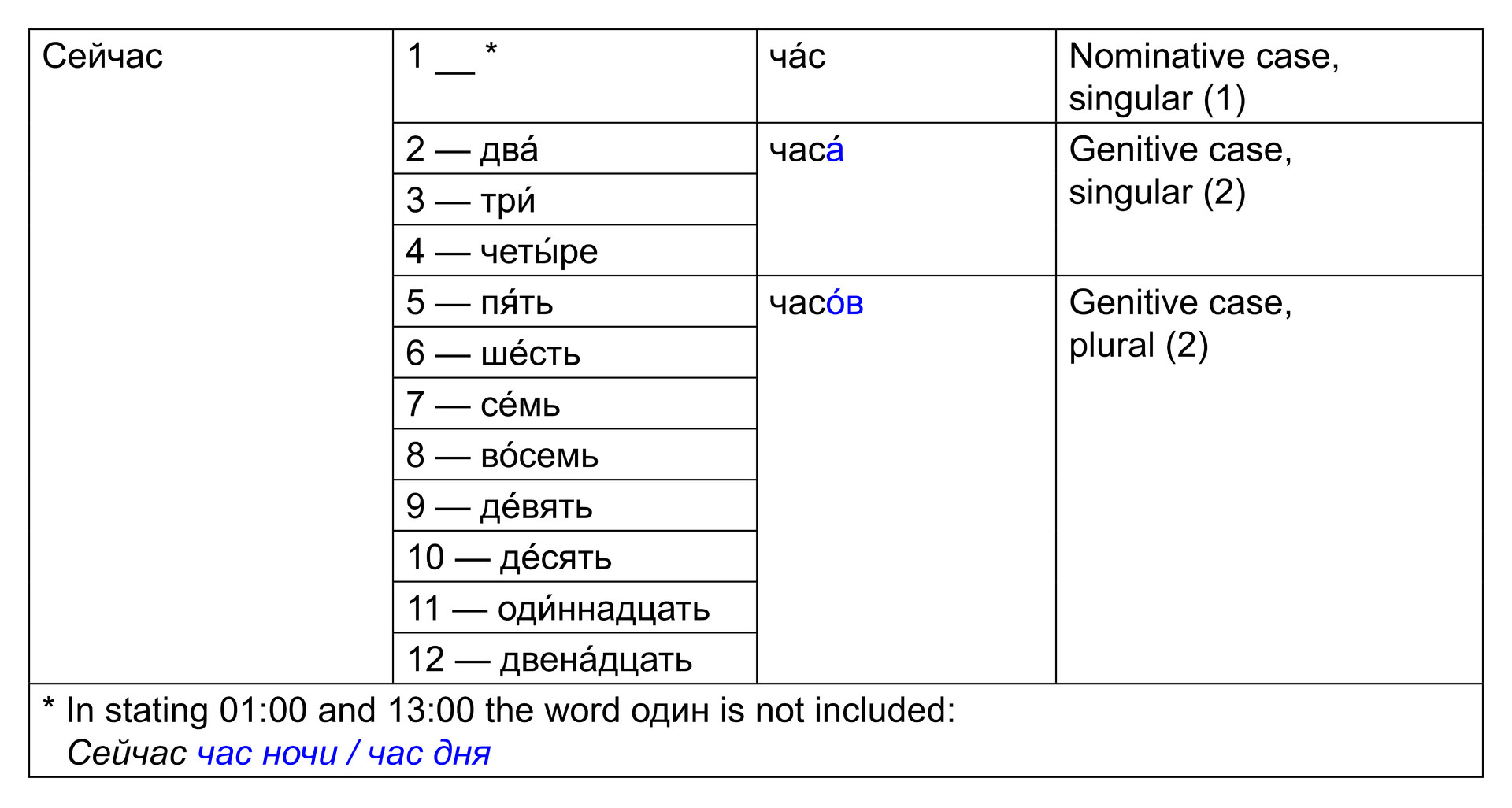
The time of day specifies what part of the day you’re talking about:

Most people experience time subjectively (12:00 for a working mother is the height of action, while a DJ is either still out performing, or in the middle of some deep sleep cycle). Nevertheless, the language combines the time of day with the hour explicitly:
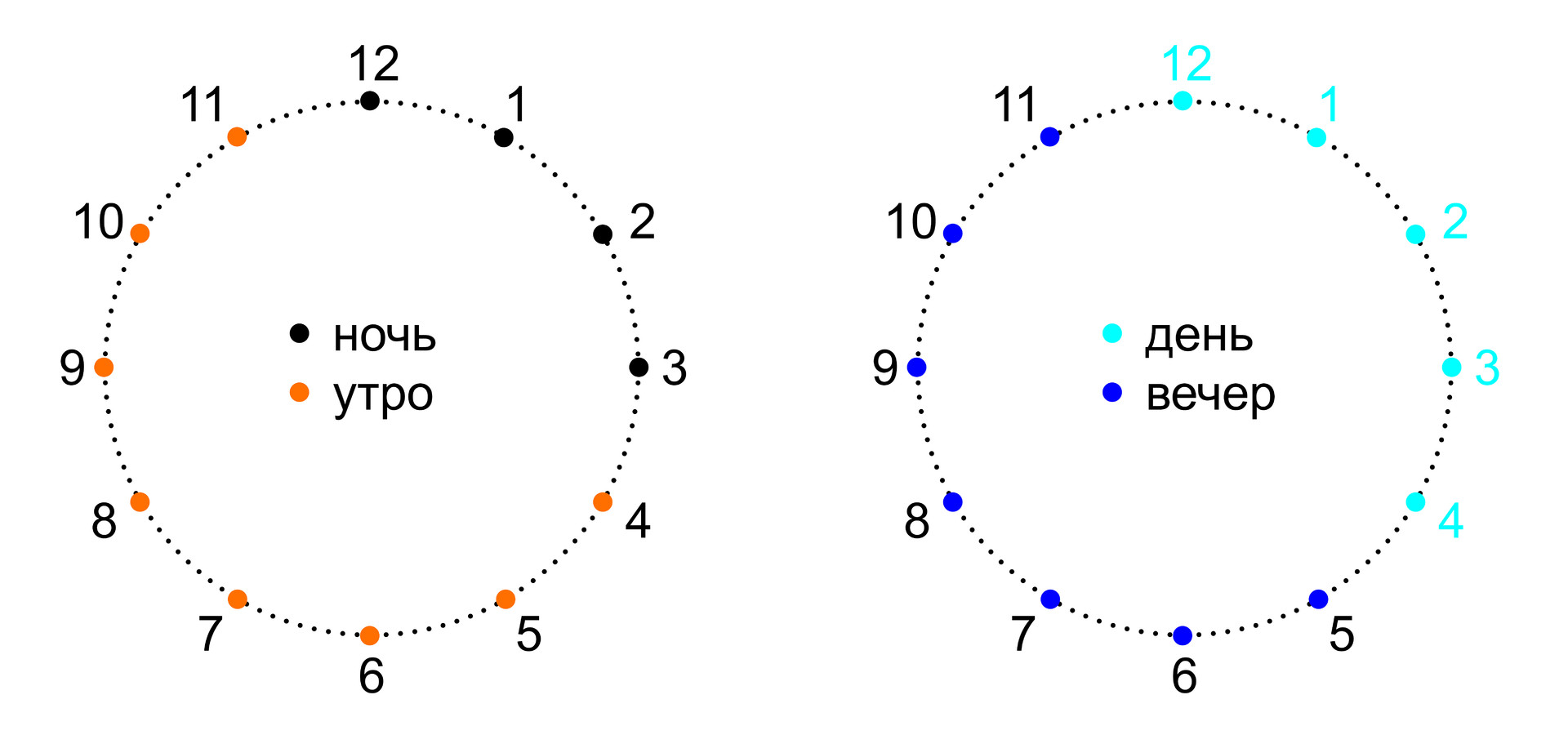
For example:
08:00 – во́семь (часо́в)* утра́,
20:00 – во́семь (часо́в) ве́чера.
00:00 – двена́дцать (часо́в) но́чи,
12:00 – двена́дцать (часо́в) дня́
* We can skip the word час in the conversational style.

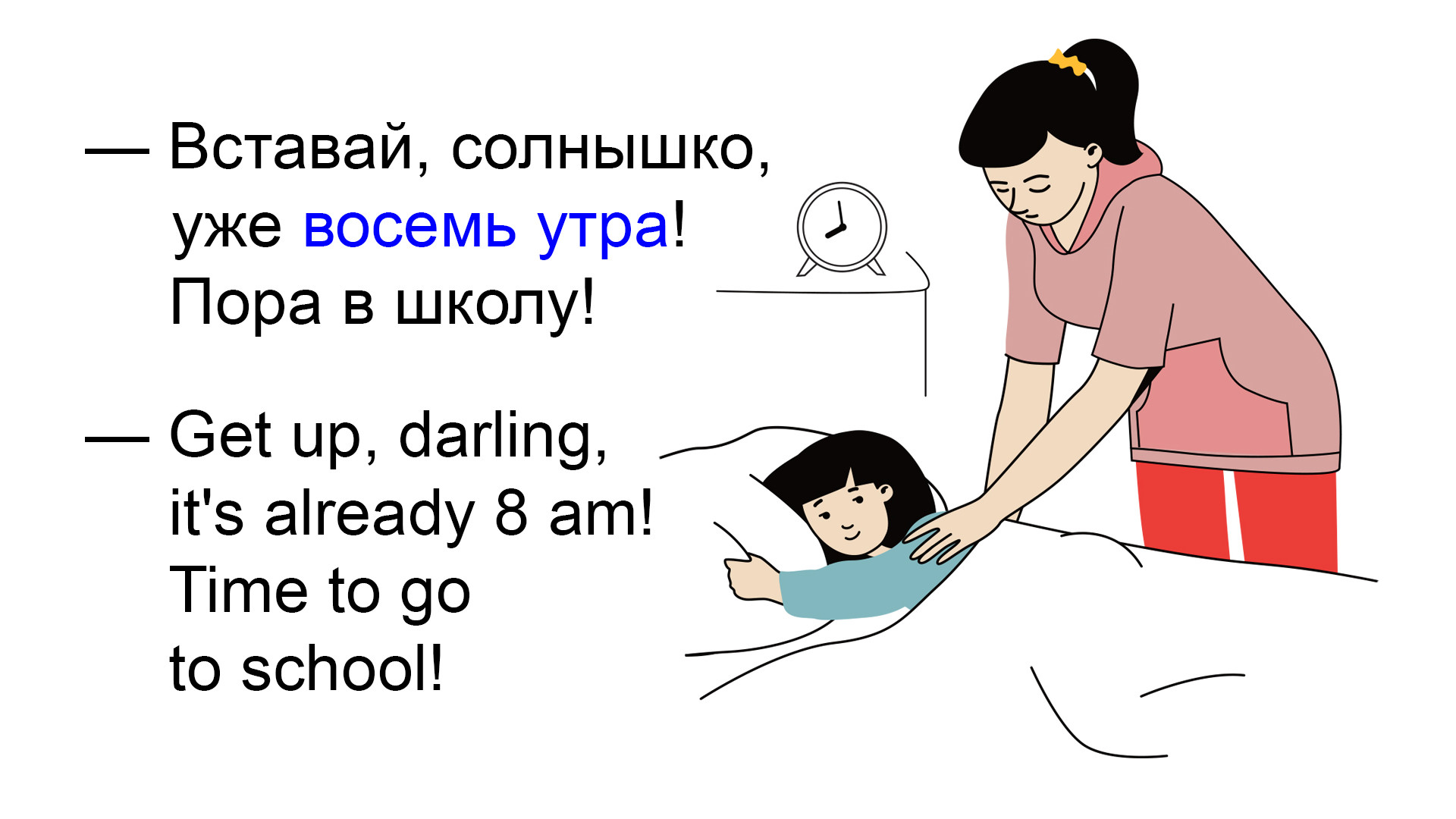
And if you’ve been standing on the metro platform and waiting for your friend for quite a while, don’t forget to text them with something like the following phrase: “Ты где?! Уже пять вечера!” It’s not guaranteed that they’ll read your message, since they might have forgotten their phone at home and are probably asking a fellow passenger: “Вы не подскажете, сколько времени?” so as to better understand how much apologizing they’ll have to do once you finally meet!
If using any of Russia Beyond's content, partly or in full, always provide an active hyperlink to the original material.
Subscribe
to our newsletter!
Get the week's best stories straight to your inbox